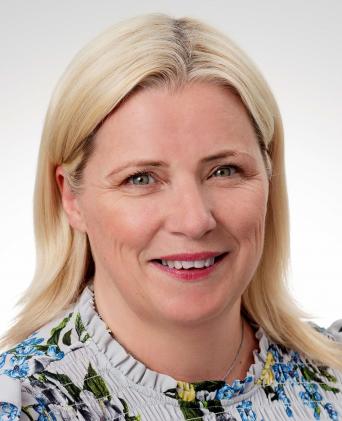For years, it was a tradition at Liberty Specialty Markets (LSM) to host a Summer Party where the dress code was ’Black Tie’ - standard attire for this type of event. The dress code guidance on the invitation has been expanded to ’Black Tie or formal wear’.
What, you might wonder, has the dress code at a party got to do with diversity, equity and inclusion in the workplace? The answer is that many cultures and religions have their own style and the black tie and cocktail dress code is far from universal. This simple change makes the event more inclusive, as previously some people may have felt excluded and not raised their viewpoint, instead choosing to decline the invitation.
Encouraging awareness
Diverse teams make better decisions which drives better success. At the heart of Liberty’s diversity, equity and inclusion (DEI) programme, we recognise that not everyone is the same and we need to be mindful of that when organising events, interviewing candidates for roles and when supporting our employees in the workplace. Often, issues that arise which make people feel excluded are not created deliberately, but by a lack of awareness. In most cases, it has not crossed a manager’s mind that they may have inadvertently made a member of their team feel uncomfortable.
As a result of this new way of thinking the LSM workplace is evolving. We regularly review our policies and adapt them to ensure that everyone feels that they are included and belong. For example, at the start of the year LSM expanded the existing Sports Membership subsidy into a more holistic Wellbeing Fund, as we recognised that not everybody can or wants to participate in a sport or join a gym. Employees can now choose from a range of options to benefit from this subsidy.
At Liberty, DEI is about all of us, and we have set up some key aspirations. These aspirations aim to help us increase engagement across the business, improve retention, ensure we are providing talented people equitable opportunities for growth, and help us attract the next generation of insurance professionals. Today, 67% of job seekers consider workplace diversity an important factor in their career choices, while 61% of employees believe DEI strategies are beneficial and essential. For a forward-looking organisation, it has become integral to its long-term success.
Beginning the journey
LSM’s DEI journey started organically. Within the business, groups began to meet, forming networks to represent shared interests. This developed into the six Inclusion Matters networks, each with an executive sponsor: cultural awareness, family and caring, pride, gender, health and wellbeing and veterans. We also formed an Inclusion Matters Steering Group. This formal structure was crucial to ensure that we could influence policy changes internally and has led to more people getting involved. Today, DEI is a core part of who we are, we have support that starts at the top, from our President and Managing Director, Matthew Moore, and we hired a Culture Manager last year to drive the agenda forward.
Cultural tipping point
This blossoming of DEI activity within LSM has been influenced by events in 2020. The rise in awareness of issues relating to racial equity has led to more people participating in the employee networks. The Black Lives Matter movement increased the exposure of the topics being raised by the Cultural Awareness Network at LSM, giving the issues people were facing more visibility across the globe. Employees were comfortable being more open in sharing their stories, and colleagues were open to hearing about their experiences. Indeed, lockdown has had a surprisingly positive effect on engagement as more people were able to attend network events online.
To aid these burgeoning conversations, we created a DEI toolkit for managers. It provides guidance on how to be an authentic leader, while respecting religious and cultural differences, to encourage diversity of thought and actions. The toolkit is designed to support people managers to talk to their teams about DEI topics and when interviewing candidates. The toolkit includes guidance on how to start the conversation and how to demonstrate cultural humility. These conversations need to happen; and we sometimes find managers need reassurance that they are able to talk about these important topics and are supported in doing so.
Maintaining momentum
Over the last couple of years, there has been a visible increase in the diversity of the LSM workforce, along with the external profile of DEI. Candidates being interviewed are citing the priority that LSM is placing on DEI as one of the reasons for wishing to work for us. Externally the changes we have introduced and the importance of the Inclusion Matters network has been recognised with a number of awards.
So, what next? Having achieved so much, it’s important that we continue the momentum. Having rolled out unconscious bias training some years ago, we have updated that with a new programme called ‘Inclusive Behaviours’.
This spring we are introducing a programme called DEI Global Fundamentals, alongside an e-learning package for all employees. The programme aims to build on our inclusive environment, providing a platform to collaborate more effectively across both cultural and personal differences.
One example of LSM’s desire to champion diversity of thought across the board is the launch of the Think-clusion Group in November 2020. The programme is led by Matthew Moore. The Group meets quarterly to ensure we gather diversity of thought and input into strategic business topics.



